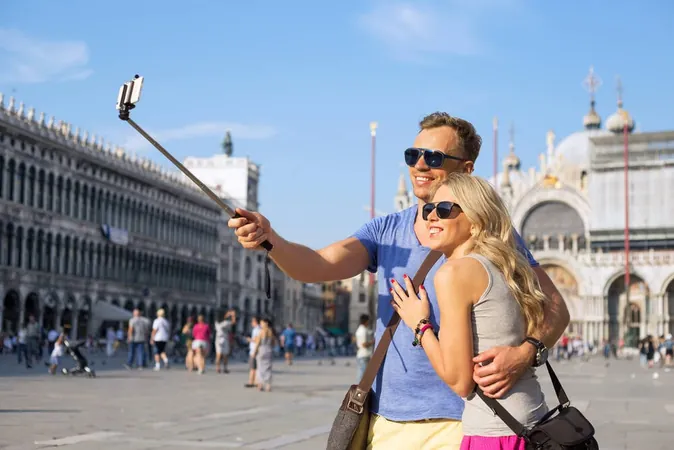
Apple's Controversial AI Photo Analysis: Is Your Privacy at Stake?
2025-01-03
Author: Li
Apple's Controversial AI Photo Analysis: Is Your Privacy at Stake?
In a move that has taken many users by surprise, Apple has quietly rolled out a feature that enables the automated analysis of photos on iOS and macOS devices. Dubbed "Enhanced Visual Search," this mechanism identifies landmarks and places of interest in users' images and has been enabled by default since the release of iOS 18.1 and macOS 15.1 on October 28, 2024.
Many Apple users are only now discovering this functionality, raising eyebrows about the lack of explicit consent and clear communication from the tech giant. Software developer Jeff Johnson highlighted this issue in recent blog posts, expressing his concerns over Apple’s approach to privacy and user awareness.
According to a policy document released on November 18, 2024, Apple states that "Enhanced Visual Search in Photos allows you to search for photos using landmarks or points of interest," with a promise that your device analyzes the photos privately due to measures like homomorphic encryption and differential privacy. In simpler terms, the technology is designed to keep your data private, allegedly preventing Apple from accessing the specifics of your photos.
But how does it work? Essentially, a local AI model scans your images to identify potential landmarks. If a match is found, it generates a kind of encrypted "fingerprint" that is sent to Apple’s servers for analysis. The fancy encryption methods they claim to use ensure that the data sent can be processed without revealing its content, a feat touted by the tech company as a victory for privacy.
Despite these technical safeguards, concerns remain. Critics like Michael Tsai contend that the lack of an opt-in option raises serious privacy issues. Tsai points out that users are potentially subjected to metadata collection even before they decide to engage with the feature, which undermines user control over personal data.
Worse yet, with images stored only on the user's device, the activation of this feature raises questions about what data may be transmitted without consent. "My objection to Apple's Enhanced Visual Search is not the technical details specifically, but rather the fact that Apple has taken the choice out of my hands," Johnson lamented. Furthermore, Apple has not yet clarified whether any data or metadata is uploaded before the user has a chance to opt out, leading to critical questions about users’ understanding of their own privacy.
While Apple asserts that the data processed through this system is independent of user accounts and locations, the community's frustrations stem largely from the lack of communication and transparency surrounding the deployment of this service. Notably, experts like Matthew Green from Johns Hopkins University have voiced concerns over the timing of this announcement right before the New Year, expressing disappointment that users had no chance to weigh in before the feature was activated.
As the debate rages on, many are left wondering: how much control do we really have over our personal data in the age of AI? With big tech companies increasingly relying on advanced technology to enhance user experiences, the line between convenience and privacy protection blurs. What’s next for Apple, and will they heed the growing calls for clearer user consent standards? Users deserve to know how their data is being used, and it’s time for tech giants to listen.
Stay tuned as we continue to monitor this evolving story. Your digital privacy might depend on it!
 Brasil (PT)
Brasil (PT)
 Canada (EN)
Canada (EN)
 Chile (ES)
Chile (ES)
 Česko (CS)
Česko (CS)
 대한민국 (KO)
대한민국 (KO)
 España (ES)
España (ES)
 France (FR)
France (FR)
 Hong Kong (EN)
Hong Kong (EN)
 Italia (IT)
Italia (IT)
 日本 (JA)
日本 (JA)
 Magyarország (HU)
Magyarország (HU)
 Norge (NO)
Norge (NO)
 Polska (PL)
Polska (PL)
 Schweiz (DE)
Schweiz (DE)
 Singapore (EN)
Singapore (EN)
 Sverige (SV)
Sverige (SV)
 Suomi (FI)
Suomi (FI)
 Türkiye (TR)
Türkiye (TR)
 الإمارات العربية المتحدة (AR)
الإمارات العربية المتحدة (AR)